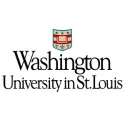Washington University in St. Louis is building a better world by preparing and supporting more effective leaders with the knowledge, experience, dedication and creativity to tackle complex problems. We are a community of people driven to meet the world’s challenges.
Through our partnerships and path-breaking research, we’re working together to shape the future of our university, our region and our world. We believe that advancements happen when diverse ideas, approaches and thinking intersect.
Visit the university website.
